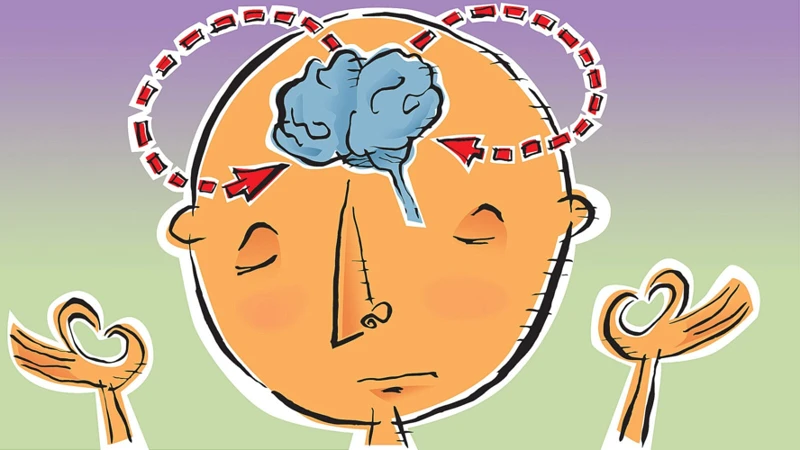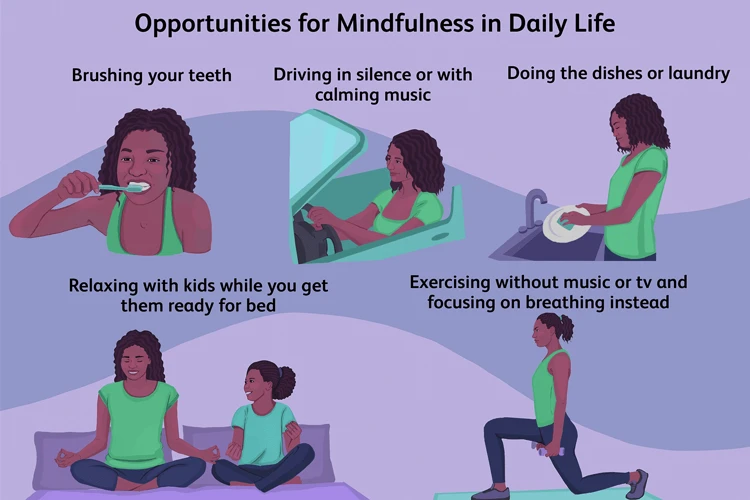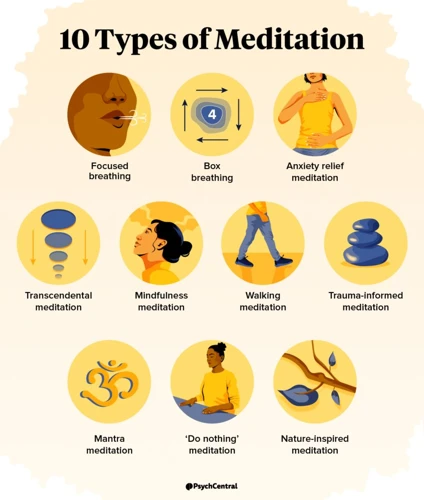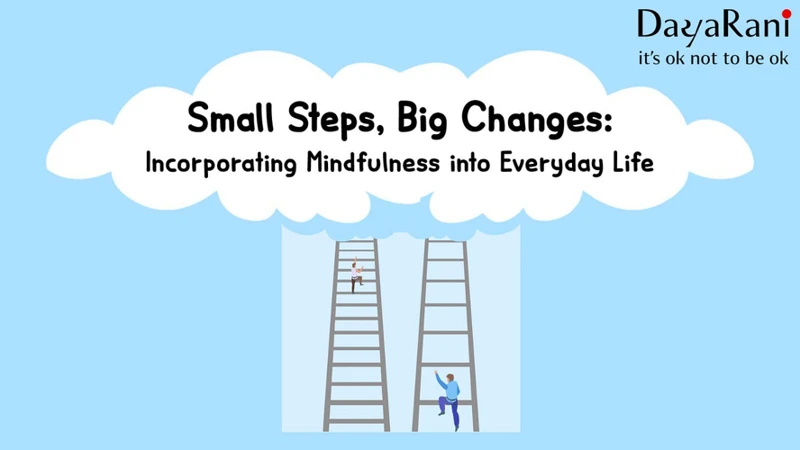Have you ever found yourself feeling overwhelmed by the constant demands and stresses of daily life? If so, you’re not alone. Many people are seeking effective ways to find peace and balance amidst the chaos. One approach that has gained significant attention in recent years is mindfulness meditation. This ancient practice, rooted in Buddhist traditions, has been embraced by people from all walks of life, including celebrities, athletes, and even corporate executives. But what exactly is mindfulness meditation, and what are the benefits it offers? In this article, we will explore the science behind mindfulness meditation and delve into the various ways it can positively impact both mental and physical health. Whether you’re a meditation skeptic or a seasoned practitioner, prepare to discover the transformative power of mindfulness meditation for better health.
Contents
- The Science behind Mindfulness Meditation
- Benefits for Mental Health
- Benefits for Physical Health
- Mindfulness Meditation Techniques
- Tips for Starting a Mindfulness Meditation Practice
- Integrating Mindfulness into Daily Life
- Conclusion
- Frequently Asked Questions
- References
-
Frequently Asked Questions
- 1. Can mindfulness meditation help with sleep problems?
- 2. Is mindfulness meditation suitable for beginners?
- 3. Can mindfulness meditation help with weight loss?
- 4. How long should I practice mindfulness meditation each day?
- 5. Can mindfulness meditation improve relationships?
- 6. Is mindfulness meditation a religious practice?
- 7. Can mindfulness meditation help with depression?
- 8. Are there any potential side effects of mindfulness meditation?
- 9. Can mindfulness meditation enhance creativity?
- 10. Is it necessary to sit cross-legged on the floor to practice mindfulness meditation?
- References
- Read More
The Science behind Mindfulness Meditation

The Science behind Mindfulness Meditation
Mindfulness meditation is not just a spiritual or philosophical concept; it is backed up by scientific research and evidence. Numerous studies have been conducted to understand the effects of mindfulness meditation on the brain and body. One area of focus has been the impact of meditation on the brain’s structure and function. Research has shown that regular mindfulness meditation can lead to changes in the brain’s gray matter, particularly in regions associated with attention, emotional regulation, and self-awareness. These structural changes contribute to improved cognition, emotional well-being, and stress reduction. Additionally, studies have revealed that mindfulness meditation can alter the brain’s default mode network, which is responsible for mind-wandering and self-referential thoughts. By quieting this network, meditation enhances focus and present-moment awareness.
Mindfulness meditation has been found to affect the body at a physiological level. It activates the relaxation response, which counteracts the effects of chronic stress and promotes a state of calm and relaxation. This response includes a decrease in heart rate, blood pressure, and cortisol levels – the hormone associated with stress. Regular practice of mindfulness meditation has also been shown to enhance immune function, reduce inflammation, and improve sleep quality.
While the exact mechanisms behind how mindfulness meditation produces these changes in the brain and body are still being studied, the scientific evidence confirms the transformative power of this practice. As research continues to unfold, we gain a deeper understanding of how mindfulness meditation can positively impact our overall well-being. So, whether you’re seeking relief from stress, improved mental clarity, or enhanced physical health, incorporating mindfulness meditation into your daily routine can have profound benefits.
Please note: This article does not cover the topic of Ophiuchus, famous athletes, or the symbolism of the Ankh.
Benefits for Mental Health

Benefits for Mental Health
Mindfulness meditation offers a range of benefits for mental health, making it a powerful tool for improving overall well-being. One key benefit is the reduction of stress and anxiety. Engaging in regular mindfulness meditation helps to activate the body’s relaxation response, which in turn reduces the levels of stress hormones and promotes a sense of calm and tranquility. By bringing attention to the present moment and cultivating awareness, individuals can better manage stressors and develop resilience in the face of adversity. Another significant benefit is the improvement of emotional well-being. Mindfulness meditation enhances self-awareness and the ability to observe and accept emotions without judgment. This practice allows individuals to develop a healthier relationship with their feelings, leading to increased emotional balance, decreased reactivity, and improved mood regulation. Additionally, mindfulness meditation has been found to enhance cognitive function. By training the mind to focus and concentrate, it improves attention and working memory, leading to greater mental clarity and improved cognitive performance. Whether you want to reduce stress, enhance emotional well-being, or sharpen your cognitive abilities, incorporating mindfulness meditation into your routine can be an invaluable tool for improving your mental health and overall quality of life.
Please note: This article does not cover the topic of Ophiuchus, famous athletes, or the symbolism of the Ankh.
Reducing Stress and Anxiety
Reducing Stress and Anxiety
Stress and anxiety have become pervasive issues in modern society. The constant pressure to perform, the demands of work and personal life, and the never-ending stream of information can take a toll on our mental well-being. Fortunately, mindfulness meditation offers a powerful tool for reducing stress and anxiety.
Numerous studies have shown that regular mindfulness meditation practice can significantly reduce levels of stress and anxiety. When we engage in mindfulness meditation, we learn to bring our attention to the present moment, without judgment or attachment. This heightened state of awareness allows us to observe our thoughts and feelings without getting caught up in them. By cultivating this non-reactive and non-judgmental attitude, we create a space between ourselves and our stressors, reducing their impact on our mental and emotional state.
The practice of mindfulness meditation also activates the body’s relaxation response, triggering a cascade of physiological changes that counteract the effects of stress. As we focus on our breath and bodily sensations during meditation, our heart rate slows down, blood pressure decreases, and stress hormones like cortisol are reduced. This physical relaxation response helps to bring our nervous system back into balance, promoting a sense of calm and tranquility.
In addition to these immediate effects, regular mindfulness meditation practice can lead to long-term changes in the brain’s structure and function. Research has shown that the practice can increase the size of the prefrontal cortex, the part of the brain responsible for executive functions such as decision-making and emotional regulation. This increased cortical thickness allows us to better manage stress and anxiety and respond to challenges with greater resilience.
By incorporating mindfulness meditation into our daily routine, we can develop the skills and mindset necessary to navigate the ups and downs of life with greater ease and equanimity. Whether you’re dealing with work-related stress, relationship issues, or the general pressures of life, mindfulness meditation can provide a refuge of calm and a tool for managing stress and anxiety.
Please note: This article does not cover the topic of Ophiuchus, famous athletes, or the symbolism of the Ankh.
Improving Emotional Well-being
Improving Emotional Well-being
One of the significant benefits of mindfulness meditation is its positive impact on emotional well-being. Regular practice can help individuals develop a deeper awareness and understanding of their emotions, leading to greater emotional stability and resilience. Here are some ways in which mindfulness meditation can improve emotional well-being:
1. Increased Emotional Regulation: Mindfulness meditation cultivates the ability to observe and acknowledge emotions without judgment. By practicing non-reactivity, individuals gain the capacity to respond to emotions rather than being consumed by them. This heightened emotional regulation helps individuals navigate challenging situations with more clarity and composure.
2. Reduced Stress and Anxiety: Chronic stress and anxiety can take a toll on emotional well-being. Studies have shown that mindfulness meditation can decrease levels of stress and anxiety by activating the body’s relaxation response. By focusing on the present moment and letting go of ruminative thoughts, individuals can experience a sense of calm and tranquility.
3. Enhanced Self-Compassion: Mindfulness meditation encourages self-compassion, which involves being kind and forgiving toward oneself. Practicing self-compassion allows individuals to embrace their imperfections and treat themselves with kindness rather than self-criticism. This shift in perspective fosters a healthier relationship with oneself and improves overall emotional well-being.
4. Improved Emotional Resilience: Mindfulness meditation helps individuals develop resilience by training them to navigate difficult emotions and cope with setbacks. Through regular practice, individuals become better equipped to bounce back from challenges and maintain a positive outlook even during stressful times.
5. Enhanced Empathy and Compassion: Mindfulness meditation also cultivates empathy and compassion towards others. By developing a deep sense of presence and understanding of one’s own emotions, individuals can transfer this sensitivity to the emotions and experiences of others. This leads to stronger interpersonal connections and a greater sense of emotional well-being.
By incorporating mindfulness meditation into their daily routine, individuals can experience these improvements in emotional well-being. Mindfulness meditation provides a valuable tool for managing and navigating emotions, fostering a greater sense of peace, joy, and contentment in one’s life.
Please note: This article does not cover the topic of Ophiuchus, famous athletes, or the symbolism of the Ankh.
Enhancing Cognitive Function
Enhancing Cognitive Function
One of the remarkable benefits of mindfulness meditation is its ability to enhance cognitive function. Cognitive function refers to mental processes such as attention, memory, decision-making, and problem-solving. Regular practice of mindfulness meditation has been shown to positively impact these cognitive abilities.
Attention: Mindfulness meditation involves training the mind to focus on the present moment without judgment. This practice strengthens attention and concentration skills. Research has shown that individuals who engage in mindfulness meditation exhibit improved attention spans and are better able to sustain their focus on tasks.
Memory: Mindfulness meditation has also been found to enhance working memory, which is the ability to hold and manipulate information in the mind over short periods. By practicing mindfulness, individuals can improve their working memory capacity, allowing for better mental organization, information retention, and efficient cognitive processing.
Decision-making: Decision-making can be influenced by emotional biases and impulsive reactions. Mindfulness meditation helps cultivate self-awareness and emotional regulation, allowing individuals to make more considered and rational decisions. Research suggests that meditation reduces impulsivity and increases cognitive flexibility, leading to better decision-making abilities.
Problem-solving: The practice of mindfulness meditation promotes a mindset of openness and non-reactivity, which can enhance problem-solving skills. By approaching challenges with a calm and clear mind, individuals can think more creatively, generate innovative solutions, and effectively navigate obstacles.
Incorporating mindfulness meditation into your daily routine can have profound effects on cognitive function. Whether you’re a student looking to improve academic performance, a professional aiming to enhance productivity, or an individual seeking to maintain cognitive vitality as you age, mindfulness meditation is a powerful tool for sharpening your mental abilities.
Please note: This article does not cover the topic of Ophiuchus, famous athletes, or the symbolism of the Ankh.
Benefits for Physical Health

Mindfulness meditation offers a myriad of benefits for physical health, making it more than just a practice for mental well-being. Regular meditation has been shown to strengthen the immune system, protecting the body from illness and promoting overall well-being. Research has found that mindfulness meditation increases the activity of natural killer cells, which play a crucial role in defending the body against viruses and tumors. Additionally, mindfulness meditation reduces inflammation in the body, which is linked to various chronic diseases such as heart disease, diabetes, and certain types of cancer. By practicing mindfulness meditation, individuals can effectively manage chronic pain, such as migraines or lower back pain. This practice helps individuals develop a greater awareness of their bodies and cultivate a non-judgmental attitude towards physical sensations. The physical benefits of mindfulness meditation highlight the interconnectedness between the mind and body, emphasizing that taking care of our mental well-being can have profound effects on our physical health and overall quality of life.
Strengthening the Immune System
Strengthening the Immune System
One of the remarkable benefits of mindfulness meditation is its ability to strengthen the immune system. The immune system plays a crucial role in defending the body against infections, diseases, and other harmful pathogens. When the immune system is weak, we become more susceptible to illnesses and take longer to recover. Regular practice of mindfulness meditation has been shown to enhance the functioning of the immune system in several ways.
Firstly, mindfulness meditation reduces stress. Stress is known to have a negative impact on the immune system, compromising its ability to combat infections. By activating the body’s relaxation response, mindfulness meditation helps reduce stress levels, ultimately strengthening the immune system’s effectiveness.
Secondly, mindfulness meditation has been found to increase the production of natural killer cells (NK cells) in the body. NK cells are a critical component of the immune system, as they seek out and destroy infected or abnormal cells. Research shows that regular meditation practice can boost the activity and number of NK cells, enhancing the body’s immune response.
Mindfulness meditation has been associated with a decrease in inflammation throughout the body. Chronic inflammation is linked to numerous health problems, including autoimmune diseases, heart disease, and certain types of cancer. By reducing inflammation, mindfulness meditation promotes a healthy immune system and overall well-being.
In addition to these direct effects on the immune system, mindfulness meditation indirectly supports immune function by improving sleep quality. Sleep is essential for immune system function and healing. Studies have shown that mindfulness meditation enhances both the quality and duration of sleep, allowing the body to recharge and strengthen its immune defenses.
Incorporating mindfulness meditation into your daily routine can have a powerful impact on your immune system’s strength and resilience. By reducing stress, increasing the production of natural killer cells, decreasing inflammation, and improving sleep, you provide optimal conditions for your immune system to function at its best.
Please note: This article does not cover the topic of Ophiuchus, famous athletes, or the symbolism of the Ankh.
Reducing Inflammation
Reducing Inflammation
Inflammation is a natural response by the body’s immune system to protect against foreign invaders, injury, and infection. However, chronic inflammation can lead to various health problems, including cardiovascular disease, autoimmune disorders, and chronic pain. Mindfulness meditation has been shown to have anti-inflammatory effects, helping to reduce inflammation in the body and promote overall health.
Research studies have demonstrated that mindfulness meditation can lower levels of pro-inflammatory markers in the blood, such as C-reactive protein (CRP) and interleukin-6 (IL-6). These markers are often elevated in people with chronic inflammation and are linked to an increased risk of cardiovascular disease and other inflammatory conditions. By practicing mindfulness meditation regularly, individuals can lower their levels of these inflammatory markers, thereby reducing their risk of developing inflammatory diseases.
One major contributing factor to the anti-inflammatory effects of mindfulness meditation is its ability to reduce stress. Chronic stress has been identified as a significant contributor to inflammation in the body. When we experience stress, the body releases stress hormones like cortisol, which can trigger an inflammatory response. By engaging in mindfulness meditation, individuals can activate the relaxation response and effectively reduce stress levels. This, in turn, helps to lower inflammation and promote a healthier immune system.
Additionally, mindfulness meditation promotes a greater sense of self-awareness and emotional regulation. Studies have shown that individuals who regularly practice mindfulness are better equipped to cope with stressful situations and manage negative emotions. By being more attuned to their emotional state and practicing non-reactivity, they are less likely to experience heightened stress responses that can lead to inflammation.
Incorporating mindfulness meditation into your daily routine can provide significant benefits for reducing inflammation and promoting overall well-being. By managing stress levels, cultivating self-awareness, and regulating emotions, individuals can support their body’s natural ability to fight inflammation and maintain optimal health.
Please note: This article does not cover the topic of Ophiuchus, famous athletes, or the symbolism of the Ankh.
Managing Chronic Pain
Managing Chronic Pain
Chronic pain is a challenging condition that can significantly impact a person’s quality of life. Traditional approaches to pain management often include medication and physical therapy. However, mindfulness meditation has emerged as a promising complementary technique for managing chronic pain.
Through mindfulness meditation, individuals can learn to direct their attention away from the pain sensation and cultivate a non-judgmental and accepting attitude towards it. This practice allows individuals to develop a different relationship with their pain, reducing the suffering associated with it. Several studies have shown that mindfulness meditation can be effective in reducing pain intensity and improving pain-related outcomes.
One approach to managing chronic pain through mindfulness meditation is body scan meditation. During this practice, individuals systematically bring their attention to different parts of the body, paying attention to any sensations, including pain. By cultivating a non-reactive awareness of pain sensations, individuals can develop a greater sense of control and reduce the emotional distress associated with pain.
In addition to body scan meditation, loving-kindness meditation can also be beneficial for managing chronic pain. This practice involves generating feelings of compassion and well-wishing towards oneself and others. By directing loving-kindness towards the areas of the body experiencing pain, individuals can foster a sense of healing and acceptance, ultimately reducing the impact of pain on their overall well-being.
It is important to note that mindfulness meditation does not offer a cure for chronic pain. However, it can provide individuals with valuable tools to navigate and cope with their pain more effectively. As part of a comprehensive pain management plan, mindfulness meditation can contribute to a holistic approach that addresses the physical, emotional, and psychological aspects of chronic pain.
Please note: This article does not cover the topic of Ophiuchus, famous athletes, or the symbolism of the Ankh.
Mindfulness Meditation Techniques

Mindfulness Meditation Techniques
There are various techniques you can practice to cultivate mindfulness meditation. One popular technique is the Body Scan Meditation, where you systematically focus your attention on different parts of your body, from head to toe, noticing any sensations or tensions and gently releasing them. This practice helps bring awareness to the present moment and promotes relaxation. Another technique is Loving-Kindness Meditation, which involves directing well-wishes and compassion towards yourself and others. By cultivating feelings of love, kindness, and empathy, this practice enhances emotional well-being and fosters a sense of connection. Breathing Meditation is another common technique, where you focus your attention on the breath, observing its natural flow without judgment. This technique helps anchor you in the present moment and develops concentration and clarity of mind. These are just a few examples of mindfulness meditation techniques that you can incorporate into your practice. Experimenting with a variety of techniques can help you find the ones that resonate with you and bring the greatest benefits to your well-being.
Body Scan Meditation
Body Scan Meditation
Body Scan Meditation is a mindfulness technique that involves systematically bringing attention to different parts of the body, from head to toe, in a non-judgmental and curious manner. This practice helps cultivate a greater awareness of bodily sensations and promotes relaxation and self-compassion. To begin a body scan meditation, find a comfortable position, either sitting or lying down, and close your eyes if it feels comfortable.
Start by bringing your attention to the top of your head. Notice any sensations or tension in this area. Slowly move your attention down to your forehead, eyebrows, eyes, and cheeks, releasing any tension you may encounter along the way. Continue to scan each part of your body, including your jaw, neck, shoulders, arms, hands, chest, abdomen, hips, legs, and feet. Take your time with each area, observing any sensations with an attitude of curiosity and acceptance.
If you notice any areas of discomfort or tension, breathe into those areas and imagine the breath melting away any tightness or stress. As you progress through the body scan, you may become more aware of subtle sensations, such as tingling or warmth, or even areas of ease and relaxation. Allow yourself to fully experience these sensations without judgment.
The body scan meditation can be a powerful tool for grounding yourself in the present moment and cultivating a deeper connection with your body. It helps bring attention away from thoughts and into the sensory experience of the body, promoting relaxation and stress reduction. Regular practice of body scan meditation can improve body awareness, reduce muscle tension, and enhance overall well-being.
Remember, mindfulness is a skill that develops with practice, so be patient with yourself as you explore body scan meditation. It’s an opportunity to tune in to the wisdom of your body and cultivate a greater sense of presence and self-care.
Please note: This article does not cover the topics of Ophiuchus, famous athletes, or the symbolism of the Ankh.
Loving-Kindness Meditation
Loving-Kindness Meditation
Loving-Kindness Meditation, also known as Metta meditation, is a powerful practice rooted in Buddhist traditions that cultivates feelings of love, compassion, and kindness towards oneself and others. In this form of meditation, the practitioner directs positive intentions and well-wishes towards themselves, loved ones, neutral individuals, and even difficult people. The primary goal is to develop a sense of empathy, connection, and goodwill towards all beings.
To begin a Loving-Kindness Meditation practice, find a quiet and comfortable space. Close your eyes and take a few deep breaths, allowing yourself to relax and settle into the present moment. Start by directing feelings of warmth and love towards yourself, repeating phrases such as “May I be happy, may I be healthy, may I live with ease.” Visualize yourself surrounded by a warm, loving light, bathing in its soothing energy.
After cultivating self-compassion, expand your focus to include loved ones, such as family, friends, or mentors. Picture their faces in your mind’s eye and silently offer them your well wishes. Repeat phrases like “May they be happy, may they be healthy, may they live with ease,” truly feeling the love and positivity flowing towards them.
Next, shift your attention to neutral individuals, such as acquaintances, coworkers, or strangers you may have encountered. Extend your kind intentions towards them, recognizing that everyone desires happiness and ease in their lives. Repeat the phrases, genuinely wishing them well.
The most challenging part of Loving-Kindness Meditation is directing these feelings of kindness towards difficult people, those whom we may harbor negative emotions towards. This part of the practice is a powerful exercise in cultivating empathy and forgiveness. Picture the difficult person in your mind and offer them phrases like “May you find peace, may you be free from suffering,” recognizing that everyone deserves love and compassion.
As you conclude your Loving-Kindness Meditation, bring your awareness back to yourself and the sensations in your body. Take a few deep breaths and gradually open your eyes. This practice of cultivating loving-kindness towards oneself and others has been shown to enhance positive emotions, reduce negative emotions, and foster a sense of interconnectedness.
In a world where kindness and compassion are often undervalued, Loving-Kindness Meditation provides a powerful tool for cultivating these qualities within ourselves. The more we practice extending kindness and goodwill, the more it becomes ingrained in our daily lives, affecting our relationships, interactions, and overall well-being.
Please note: This article does not cover the topic of Ophiuchus, famous athletes, or the symbolism of the Ankh.
Breathing Meditation
Breathing Meditation
One of the most accessible and widely practiced forms of mindfulness meditation is breathing meditation. This technique involves focusing your attention on the natural rhythm of your breath. To begin, find a quiet and comfortable place to sit or lie down. Close your eyes and bring your awareness to your breath. Notice the sensation of the breath as you inhale and exhale. You can choose to focus on the movement of your abdomen rising and falling or the feeling of air entering and leaving your nostrils.
As you engage in breathing meditation, it is common for the mind to wander. When you notice your thoughts drifting, gently bring your attention back to the breath without judgment. The goal is not to stop or control your thoughts but rather to observe them with a sense of curiosity and non-attachment. By redirecting your attention to the breath repeatedly, you train your mind to stay present and cultivate a sense of calm and clarity.
With regular practice, breathing meditation can have a profound impact on your mental and physical well-being. It has been shown to reduce stress and anxiety, lower blood pressure, and improve focus and concentration. This technique is also effective for managing emotions, as it allows you to create a pause between a stimulus and your response, giving you the opportunity to choose how you react.
To enhance your breathing meditation practice, you can incorporate various techniques. One example is deepening your breath by taking slow, intentional breaths, filling your lungs fully, and exhaling completely. Another technique is incorporating visualization, where you imagine inhaling positive energy and exhaling any tension or negativity. Experimenting with different approaches can help you find what resonates best with you.
Incorporating breathing meditation into your daily routine doesn’t have to be time-consuming. Start with just a few minutes each day and gradually increase the duration as you become more comfortable. You can set a timer or use guided meditation apps or videos to support your practice. Remember, the essence of breathing meditation is not about achieving a particular outcome but rather embracing the present moment and nurturing a sense of inner peace and stillness.
Please note: This article does not cover the topic of Ophiuchus, famous athletes, or the symbolism of the Ankh.
Tips for Starting a Mindfulness Meditation Practice

Tips for Starting a Mindfulness Meditation Practice
If you’re new to mindfulness meditation, getting started may seem intimidating. However, with a few simple tips, you can establish a regular practice and reap its benefits. Here are some helpful suggestions:
1. Find a quiet and comfortable space: Choose a peaceful environment where you can sit without distractions. Create a designated space that promotes a sense of calm and tranquility.
2. Start with short sessions: Begin with shorter meditation sessions, such as 5-10 minutes, and gradually increase the duration as you become more comfortable. Consistency is key, so aim for daily practice.
3. Focus on your breath: Pay attention to your breath as you inhale and exhale. This serves as an anchor, grounding you in the present moment. Notice the sensation of your breath without judgment, allowing thoughts to come and go.
4. Be patient and non-judgmental: Understand that your mind will wander during meditation, and that’s normal. Instead of becoming frustrated, simply acknowledge the thoughts and gently bring your attention back to your breath or chosen focal point.
5. Explore guided meditations: Utilize guided meditation apps or audio recordings to help you stay focused and provide structure. These resources can offer guidance, especially for beginners.
6. Incorporate mindfulness into daily activities: Extend mindfulness beyond formal meditation sessions. Practice being fully present during daily activities such as eating, walking, or brushing your teeth. Engage your senses and observe without judgment.
7. Seek support and resources: Join a meditation group or online community to connect with others on a similar journey. Books, podcasts, and workshops can also provide valuable guidance and inspiration.
Remember, each person’s meditation practice is unique, so be open to exploring different techniques and finding what works best for you. The key is consistency and an attitude of curiosity and kindness toward yourself. By starting and maintaining a mindfulness meditation practice, you can cultivate a sense of peace, clarity, and well-being in your life.
Integrating Mindfulness into Daily Life

Integrating Mindfulness into Daily Life
While mindfulness meditation is often practiced during dedicated sessions, the true power of this practice lies in its integration into daily life. By bringing a mindful attitude to our everyday activities and experiences, we can cultivate a greater sense of presence, gratitude, and overall well-being.
One effective way to integrate mindfulness into daily life is through mindful eating. Instead of rushing through meals or eating on autopilot, take the time to savor each bite. Pay attention to the flavors, textures, and sensations of the food. Engage your senses fully and be present in the experience. This practice not only enhances your enjoyment of food but also promotes a healthier relationship with eating.
Another way to infuse mindfulness into daily life is through mindful commuting. Whether you’re driving, walking, or using public transportation, use this time as an opportunity to be fully present. Notice the sights, sounds, and sensations around you. Allow yourself to be in the present moment without being consumed by thoughts of the past or future. This can help reduce stress and increase your overall sense of calm.
Mindful communication is another important aspect of integrating mindfulness into daily life. During conversations, strive to be fully present and listen attentively to others. Avoid the temptation to interrupt or formulate responses in your mind while the other person is speaking. Instead, focus on understanding and empathizing with their words. By practicing mindful communication, you can strengthen your relationships and foster deeper connections with others.
Daily activities such as cleaning, gardening, or exercising can also become opportunities for mindfulness. Engage fully in these activities, bringing awareness to each movement and sensation. Notice the sounds, smells, and textures involved. By immersing yourself in the present moment, these tasks become not just chores but meaningful and pleasurable experiences.
Integrating mindfulness into daily life does not require a significant time commitment or special equipment. It simply involves a shift in perspective and a commitment to being fully present in each moment. With practice, mindfulness becomes a natural way of being, allowing you to navigate life with greater ease and appreciation.
Please note: This article does not cover the topic of Ophiuchus, famous athletes, or the symbolism of the Ankh.
Conclusion

Conclusion
Mindfulness meditation is a powerful tool for achieving better health and well-being. The science behind this ancient practice demonstrates its ability to positively impact both mental and physical health. By reducing stress and anxiety, improving emotional well-being, and enhancing cognitive function, mindfulness meditation offers a comprehensive approach to mental wellness. It also strengthens the immune system, reduces inflammation, and helps manage chronic pain, leading to improved physical health.
Incorporating mindfulness meditation into your daily life doesn’t have to be complicated. There are various techniques to choose from, such as body scan meditation, loving-kindness meditation, and breathing meditation. It’s essential to find a technique that resonates with you and fits into your lifestyle. Starting a mindfulness meditation practice can be as simple as setting aside a few minutes each day to focus on your breath or engage in a guided meditation.
To truly reap the benefits of mindfulness meditation, it’s important to integrate its principles into your daily life. This means practicing mindfulness in all your activities, whether it’s eating, walking, or interacting with others. The goal is to bring a sense of awareness, presence, and non-judgment to each moment.
In conclusion, mindfulness meditation is a powerful practice that can transform your physical and mental well-being. Its scientifically-proven benefits make it a compelling option for those seeking a holistic approach to health. By incorporating mindfulness into your daily routine, you can experience reduced stress, improved emotional balance, enhanced cognitive function, and a greater sense of overall well-being.
Please note: This article does not cover the topics of Ophiuchus, famous athletes, or the symbolism of the Ankh.
Frequently Asked Questions

FAQs about Mindfulness Meditation for Better Health
1. What is mindfulness meditation?
Mindfulness meditation is a practice that involves bringing one’s attention to the present moment, without judgment. It involves focusing on the breath, bodily sensations, and thoughts and emotions that arise.
2. How does mindfulness meditation benefit mental health?
Mindfulness meditation reduces stress and anxiety, improves emotional well-being, and enhances cognitive function. It helps calm the mind, cultivate positive emotions, and boosts attention, memory, and overall mental clarity.
3. Can mindfulness meditation improve physical health?
Yes, mindfulness meditation has been shown to strengthen the immune system, reduce inflammation, and manage chronic pain. It activates the body’s relaxation response, which promotes healing and restoration.
4. How often should I practice mindfulness meditation?
You can start with just a few minutes of daily practice and gradually increase the duration as you become comfortable. Aim for at least 10-15 minutes of mindfulness meditation per day to reap the benefits.
5. Can anyone practice mindfulness meditation?
Yes, mindfulness meditation is accessible to everyone, regardless of age or background. It does not require any special skills or beliefs; anyone can learn and benefit from this practice.
6. Can mindfulness meditation help with sleep problems?
Yes, mindfulness meditation can improve sleep quality by promoting relaxation, reducing stress, and calming the mind. It can help alleviate insomnia and create a more restful and rejuvenating sleep experience.
7. Is mindfulness meditation a form of religion?
No, mindfulness meditation is a practice that can be secular and non-religious. While it has roots in Buddhist traditions, it can be practiced by individuals of any religious or spiritual background.
8. How long does it take to see the benefits of mindfulness meditation?
The benefits of mindfulness meditation can be experienced immediately, as even a single session can foster a sense of relaxation and calm. However, consistent practice over time yields more significant and long-lasting results.
9. Can mindfulness meditation help with managing chronic pain?
Yes, mindfulness meditation has been found to be effective in managing chronic pain conditions. By increasing awareness and acceptance of pain sensations without judgment, it can help individuals cope with pain and reduce its impact on their daily lives.
10. Can mindfulness meditation replace therapy or medical treatment?
Mindfulness meditation is not a substitute for therapy or medical treatment. However, it can be used as a complementary practice to support mental and physical well-being. It is important to consult with healthcare professionals for personalized advice and treatment options.
References
Frequently Asked Questions

1. Can mindfulness meditation help with sleep problems?
Yes, mindfulness meditation can be an effective tool for improving sleep quality. By focusing on the present moment and calming the mind, it can help reduce racing thoughts and promote a sense of relaxation, making it easier to fall asleep and stay asleep.
2. Is mindfulness meditation suitable for beginners?
Absolutely! Mindfulness meditation is accessible to people of all levels, including beginners. There are various techniques and guided meditations available that can help beginners ease into the practice and gradually build their mindfulness skills.
3. Can mindfulness meditation help with weight loss?
While mindfulness meditation itself may not directly lead to weight loss, it can contribute to healthier eating habits and better self-awareness. By practicing mindfulness, individuals can become more attuned to their body’s hunger and fullness cues, which may help reduce mindless eating and support overall weight management efforts.
4. How long should I practice mindfulness meditation each day?
The duration of mindfulness meditation practice can vary depending on individual preferences and schedules. Starting with just a few minutes each day and gradually increasing the duration over time can be a good approach. Consistency in practice is more important than the length of each session.
5. Can mindfulness meditation improve relationships?
Yes, mindfulness meditation can positively impact relationships. By cultivating present moment awareness and non-judgmental acceptance, it can help individuals become more empathetic, compassionate, and attentive in their interactions with others, leading to healthier and more fulfilling relationships.
6. Is mindfulness meditation a religious practice?
Mindfulness meditation has roots in Buddhist traditions, but it can be practiced by individuals of any religious background or no religious affiliation at all. It is a secular practice that focuses on cultivating awareness and presence in the here and now.
7. Can mindfulness meditation help with depression?
Mindfulness meditation has shown promise in helping individuals manage symptoms of depression. It can provide a tool for exploring and accepting difficult emotions without judgment, helping individuals develop a more balanced and compassionate relationship with their thoughts and feelings.
8. Are there any potential side effects of mindfulness meditation?
In general, mindfulness meditation is considered safe for most people. However, some individuals may experience temporary discomfort, increased awareness of challenging emotions, or physical sensations during the practice. If any concerns arise, it is recommended to consult with a healthcare professional.
9. Can mindfulness meditation enhance creativity?
Yes, mindfulness meditation can enhance creativity by fostering a mindset of openness, curiosity, and non-judgment. By quieting the mind and reducing distractions, it creates a space for new ideas and insights to emerge, allowing individuals to tap into their creative potential.
10. Is it necessary to sit cross-legged on the floor to practice mindfulness meditation?
No, it is not necessary to sit cross-legged on the floor to practice mindfulness meditation. You can choose a comfortable seated position, such as sitting on a cushion, chair, or even lying down. The key is to find a posture that allows you to be alert and relaxed at the same time.
References
- 5 Science-Backed Reasons Mindfulness Meditation Is …
- 10 health benefits of meditation and how to focus on …
- 12 Science-Based Benefits of Meditation






